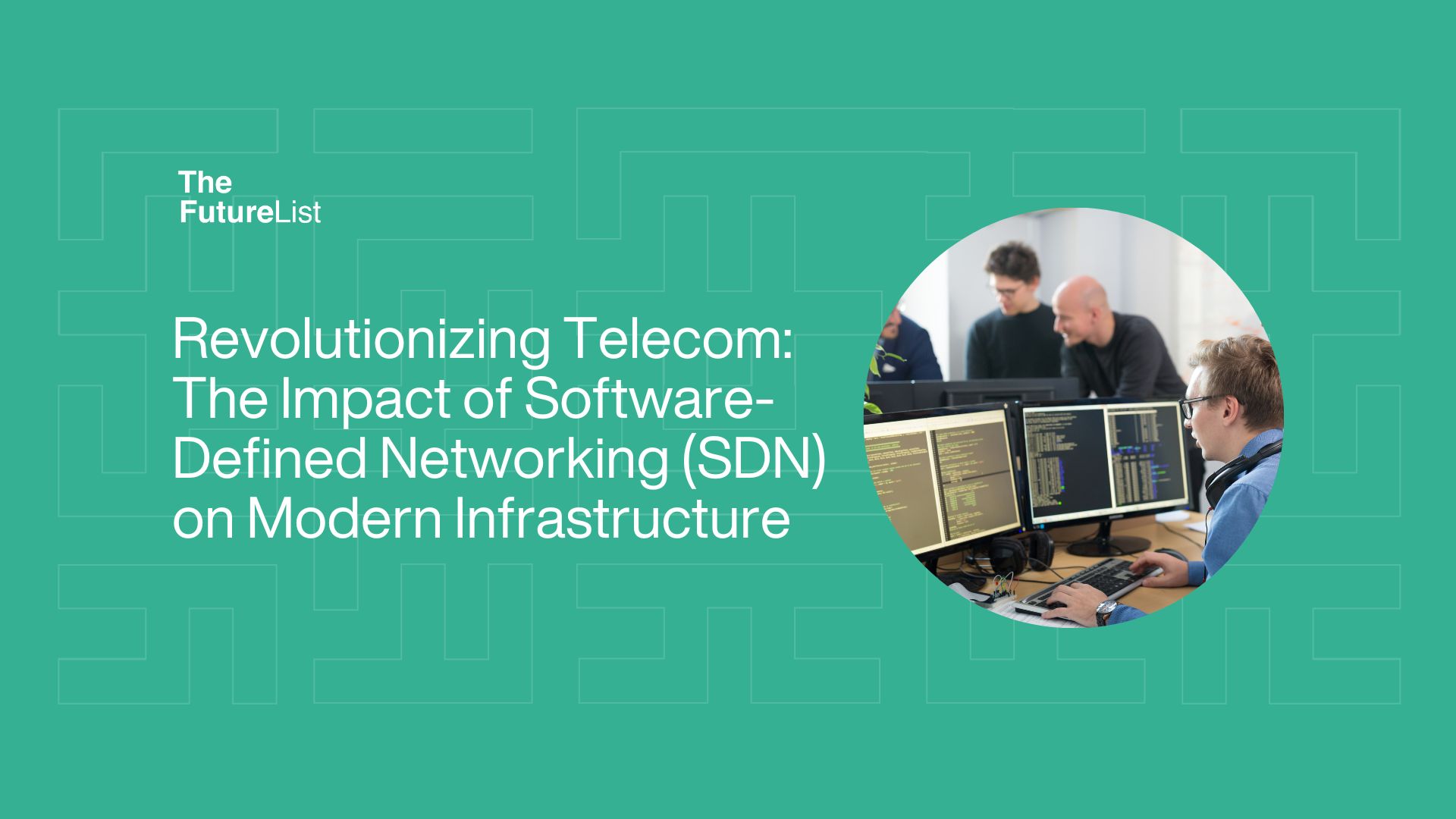
Revolutionizing Telecom: The Impact of Software-Defined Networking (SDN) on Modern Infrastructure.
The telecom sector is changing due to Software-Defined Networking (SDN), which makes network administration more effective, scalable, and flexible. Historically, sophisticated and rigid hardware-based setups constituted the foundation of telecom networks. Through centralized control, SDN allows network managers to manage, monitor, and configure networks dynamically by moving the control plane from hardware to software. In addition to lowering operating expenses, this change improves network security, performance, and flexibility. SDN is making more adaptable and future-proof infrastructure possible as telecom carriers look to satisfy the demands of contemporary apps and increase data traffic.
Reducing Operating Costs with Software-Defined Networking (SDN)
The introduction of automation, centralized control, and enhanced resource usage by Software-Defined Networking (SDN) is transforming cost management in network operations. Manual settings and costly proprietary hardware are necessary for traditional networks, which results in inefficiencies and high operating costs. By enabling software-based network administration and separating the control plane from the hardware, SDN lowers these costs. By doing this, the requirement for specialist gear is reduced, maintenance expenses are decreased, and bandwidth utilization is optimized.
Furthermore, SDN’s programmability enables automated network modifications, which minimizes human error and labor-intensive operations. By improving scalability and efficiency, SDN enables enterprises to save a substantial amount of money while preserving a high-performance network infrastructure.
Innovative Startups Accelerating the Transformation of Modern Infrastructure with SDN
Established by Dan Mihai Dumitriu in Japan, a firm named Midokura is attempting to disrupt the conventional networking sector by tackling network virtualization with their ambitious software platform, MidoNet. Currently, in development, the MidoNet software is intended to enable network virtualization so that businesses and cloud providers can create infrastructure as a service environment for private or public clouds.
Samer Bishay is the co-founder of Karrier One, which provides decentralized telecom networks with adaptable and effective communication infrastructures through the use of SDN. Karrier One, a Canadian startup, combines Web3 and telecom to provide decentralized, high-quality connectivity. Its platform, Karrier One Chain, develops a decentralized network with global 5G capabilities, which delivers access to underdeveloped areas.
Founded by David Cermak, Blindspot Technologies uses SDN to improve network security and performance by offering autonomous incoming traffic cleaning services. The product from Blindspot Technologies provides constant network integrity through cloud-based DDoS mitigation. To efficiently isolate threats, the system employs Radware technology to monitor and scrub traffic in real-time.
Get innovation insights from The FutureList weekly. Subscribe to our newsletter here
Categories
- Agritech
- Artificial Intelligence
- Biotech
- Blockchain
- Climate Tech
- Data Infrastructure
- Edtech
- Events
- Fashion
- Fintech
- Healthtech
- Infrastructure
- Innovation Memos
- Innovation Scout Program
- Insight
- Insurtech
- Machine Learning
- Martech
- Mobility
- Music and Media
- Partner Offers
- Perks
- Procurement
- Proptech
- Retailtech
- Ridehailing
- Ridesharing
- Robotics
- Space Aviation
- Supply Chain
- Talent
- Telecoms
- Uncategorized
- Venture Capital
- Wastetech
- Women In Tech
Recent Posts
- Crafting Customised Virtual Networks for the 5G Era and Beyond with Network Slicing
- Understanding FDA Medical Device Classes and Why They Matter
- The Rise of Physical AI: Intelligence Moving Into the Real World
- Shaping the Future of Medicine: How Tiny Devices Are Revolutionising Vital Body Functions
- The Rural Health Operating System: Reinventing Access to Care in Africa